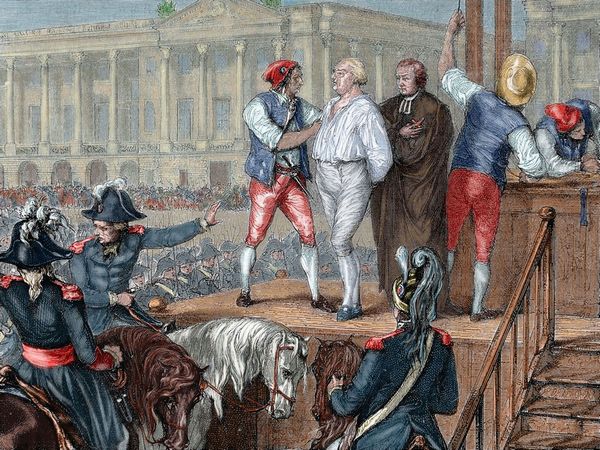From ideology to humanity
Humans make history, but, up to the present, they have made it largely unconsciously – which rules out, really, any so-called ‘conspiracy theory’. They respond to social evolution ideologically, which is not the same as saying that ideology alone motivates action. Ideology is part of the conscious motivation of a largely only semi-conscious (in socio-economic terms) mass of people. This was truer in former times than it is now, at least in the advanced industrialised countries, when today we have mass communication and information bombardment on an unprecedented, global, scale, which unites people from all over the world in real terms as never before – even if this yet evades the consciousness of the overwhelming majority.

The bourgeois revolution in Europe alone took a multitude of ideological forms, therefore, from Humanism to Calvinist puritanism, from democratic puritanism to the deism and atheist-materialism of the Enlightenment, from Luther to Lenin, all depending on the epoch and the social circumstances in which people found themselves. All these different ideologies expressed an unconscious movement out of feudalism and into capitalism – that is the real, but unconscious, motivating factor. The conscious factors are the ideologies, religious and political, finding expression through polemics and philosophy, literature and art, and also through militarism and (following the emergence of nation-states) the rise of nationalism.
The socialist revolution will be the first – in emancipating the last class to be emancipated – to require full majority consciousness, in that, because of its requirements, it cannot be achieved (unlike former social revolutions) by a minority leading others, but has to encompass a broad population that is fully conscious of its socio-economic tasks. The end of class society therefore marks the end of ideology as currently understood, and the emergence of humanity. Ideas in socialism will be the expression of individual thought, choice, and action. Where there are no classes, thinking will come into its own, as there will be no class to keep others in an exploitable position through the imposition of an ideology. Classlessness necessarily leads to individuality, as Wilde predicted. Under these conditions, art and literature, and science, will blossom as never before, benefiting from each person’s unique and individually rooted contribution.
A.W.
